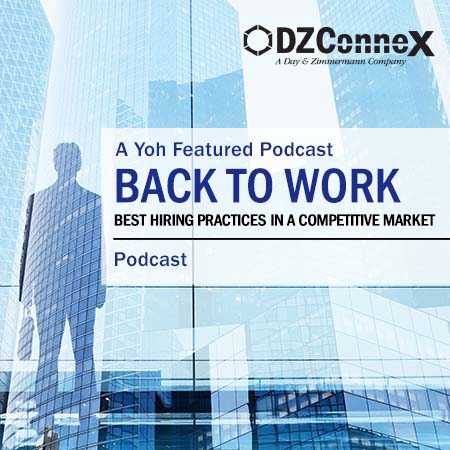In an era of constant change, the job market has undergone a major transformation, which has created both exciting opportunities and stressful challenges. Within this new dynamic landscape, employers find themselves struggling with a daunting obstacle: the challenging issue of skill gaps. As they seek out qualified candidates to fill their open roles, the issue of skill gaps has emerged as one of the most pressing challenges in today's job market.
What is a skill gap?
A skill gap refers to the disparity between the skills required for a particular job and the skills possessed by job seekers or existing employees.
Skills gaps can happen for several reasons. Factors such as technology advancements, shifts in the job market, education, and demographic changes can all be reasons why there is such a significant skill gap in today's workforce. To overcome these obstacles, employers have to adopt proactive measures to bridge these gaps effectively.
In this blog post, we will explore several strategies employers can implement to prevent skill gaps when hiring for their organization.
How to Prevent Skill Gaps Within Your Organization
Invest in Continuous Learning and Development Programs
To avoid skill gaps, employers can invest in continuous learning and development programs that cater to the specific needs of their workforce. These programs can include training sessions, workshops, seminars, and online courses to enhance technical and soft skills. By fostering a culture of continuous learning, employers provide their employees with opportunities to acquire new skills and stay updated with industry trends. Additionally, offering financial support or incentives for professional certifications can motivate employees to upskill themselves and bridge any existing skill gaps.
Consider Implementing a Targeted Recruitment Process
When hiring, employers should consider developing a targeted recruitment process that focuses on identifying candidates with the skills needed for the open roles within their organization. Although skillsets don't always need to precisely match, consider candidates that have skills that could be transferrable to what you're looking for. Additionally, incorporating competency-based interviews, practical assessments, and work samples can help employers assess their candidates' abilities more effectively and efficiently, enabling them to identify potential beyond their qualifications.
Offer On-the-Job Training and Mentoring Programs to New Hires
Employers can bridge skill gaps by providing on-the-job training and mentoring programs to new hires. This approach allows employers to tailor training to the specific needs of the role and the organization. Pairing new employees with experienced colleagues or assigning them to cross-functional teams can accelerate their knowledge of the organization and help them acquire job-specific skills more efficiently. These initiatives address skill gaps and foster a sense of belonging and growth within the organization. Investing in your employees' skills is essential to organizational success.
Embrace Diversity and Inclusion Within Your Organization
Diversity and inclusion are essential components of an effective strategy to close skill gaps. By embracing diversity, employers can tap into a broader talent pool with a wide range of skills and perspectives. Diverse teams bring different experiences and ideas, creating a more innovative and creative environment within their organization. Additionally, fostering an inclusive work environment that encourages collaboration and mutual respect creates opportunities for employees to learn from one another.
Collaborate with Industry-Specific Associations
Employers can benefit significantly from collaborating with industry associations and professional networks. These partnerships can provide access to valuable resources, training programs, and networking opportunities that help close skill gaps. Many times, industry associations offer certifications, conferences, and workshops tailored to the needs of specific sectors. Employers should encourage their employees to participate in these types of activities to gain industry-specific skills and knowledge.
While skill gaps may be a challenge for employers in today's job market, they can be effectively addressed and resolved by practicing proactive measures and training accordingly, as mentioned above. By investing in continuous learning programs, implementing targeted recruitment strategies, offering on-the-job training and mentoring programs, and embracing diversity and inclusion, you can ensure continued growth and prevent your organization from being left behind.
If you need help figuring out where to begin, consider contacting a Total Talent expert, like DZConneX, today. With over 30 years of experience, our industry experts will help you implement a successful, best-in-class solution you can manage for years. DZX's total talent expertise provides clients with the solution they need to find the right talent to run their business successfully. You can learn more here.



%20Size%20Photos/Businesspeople%20having%20a%20casual%20meeting.jpg)



